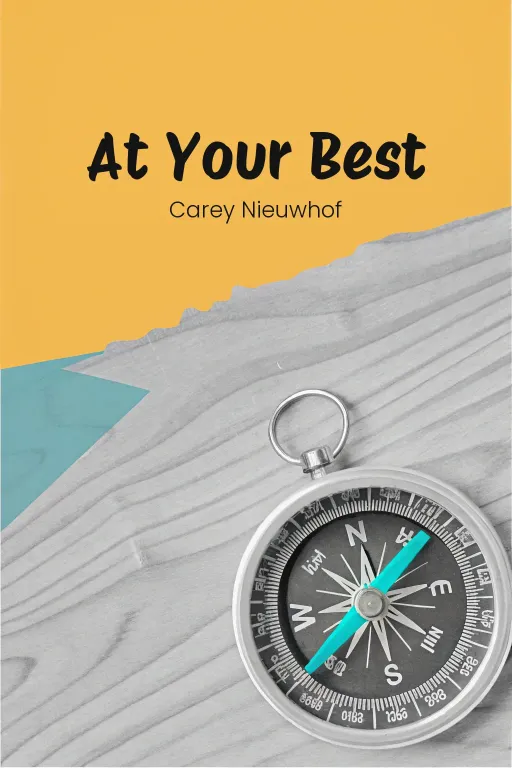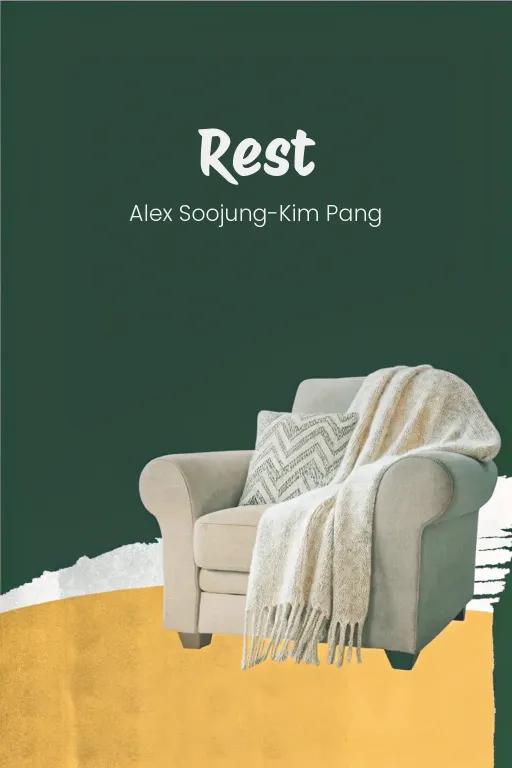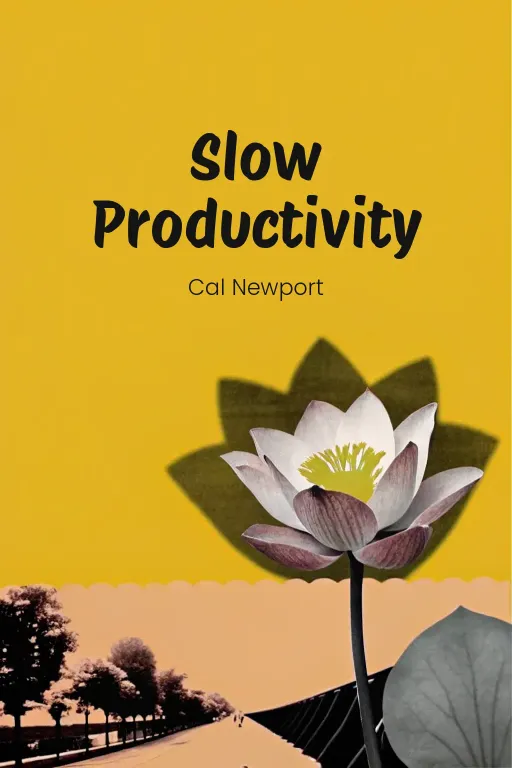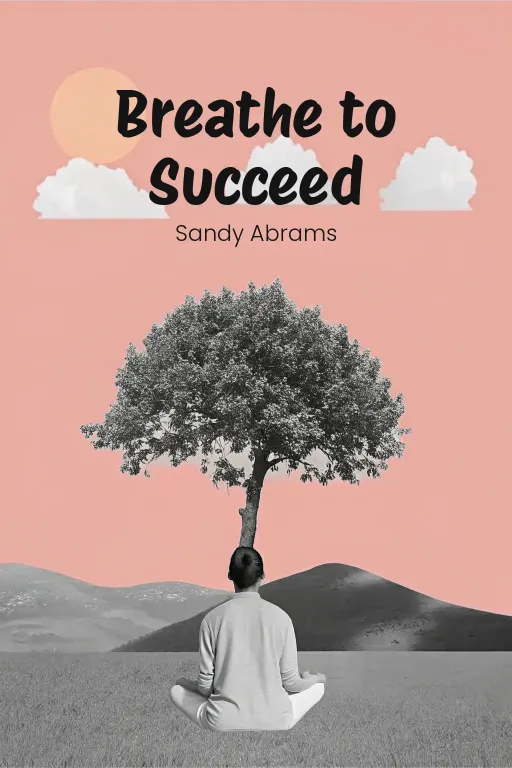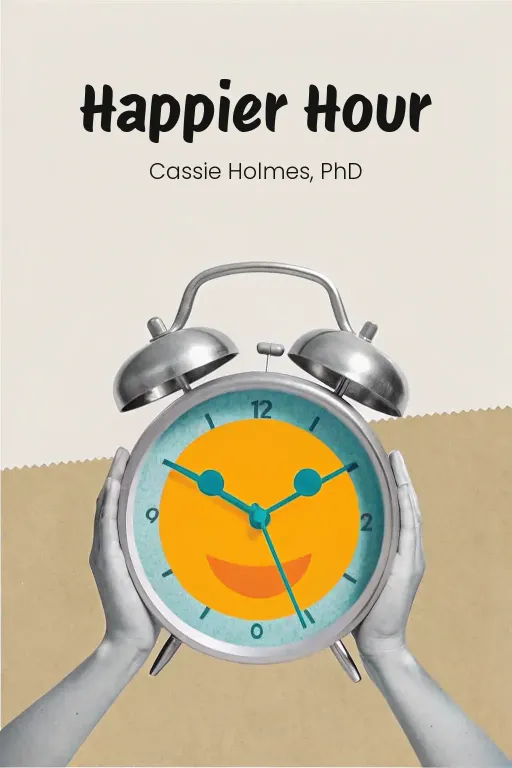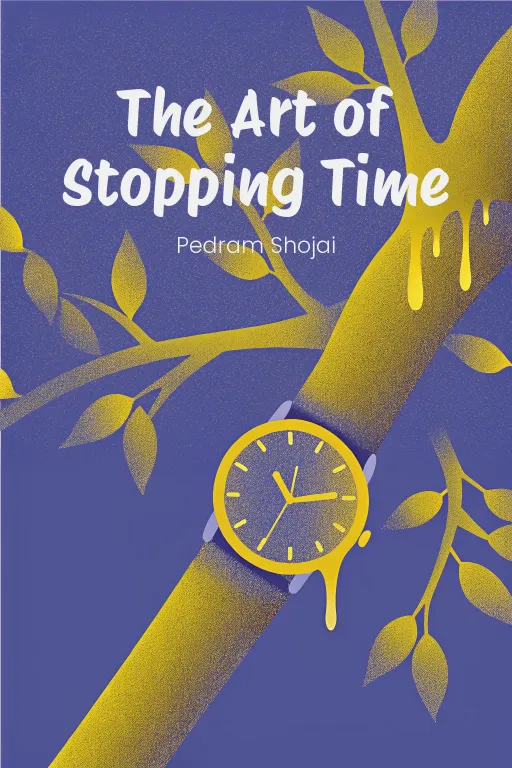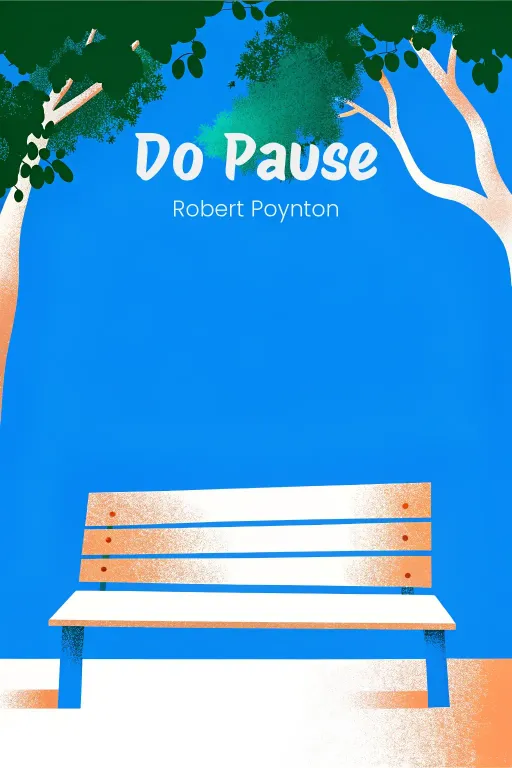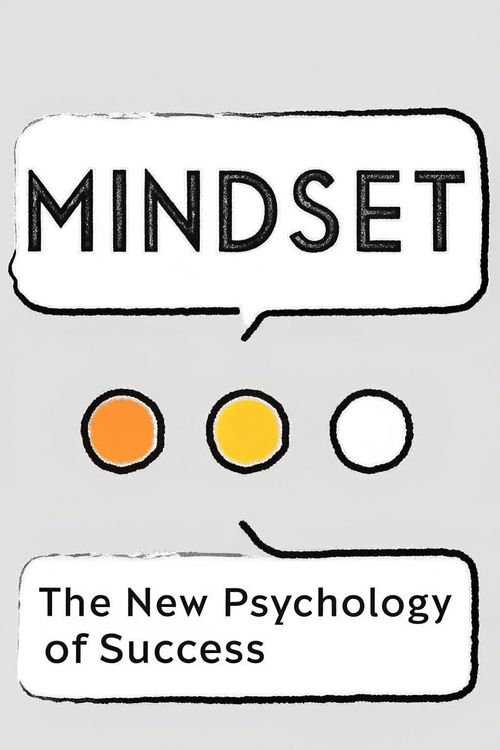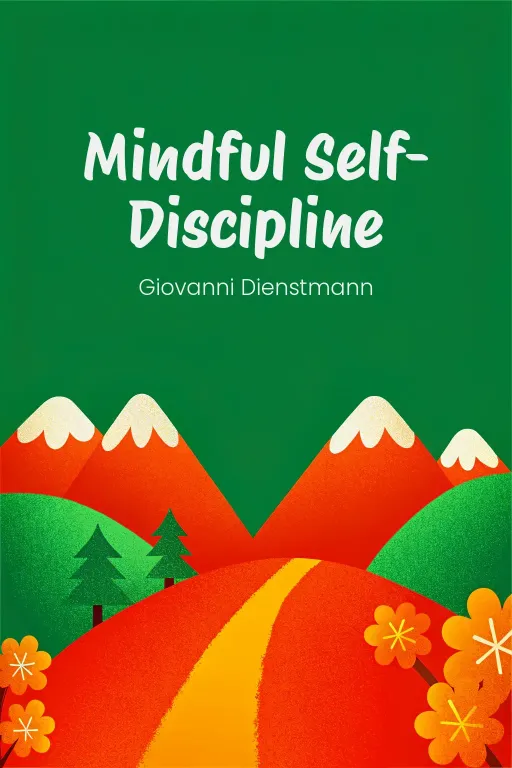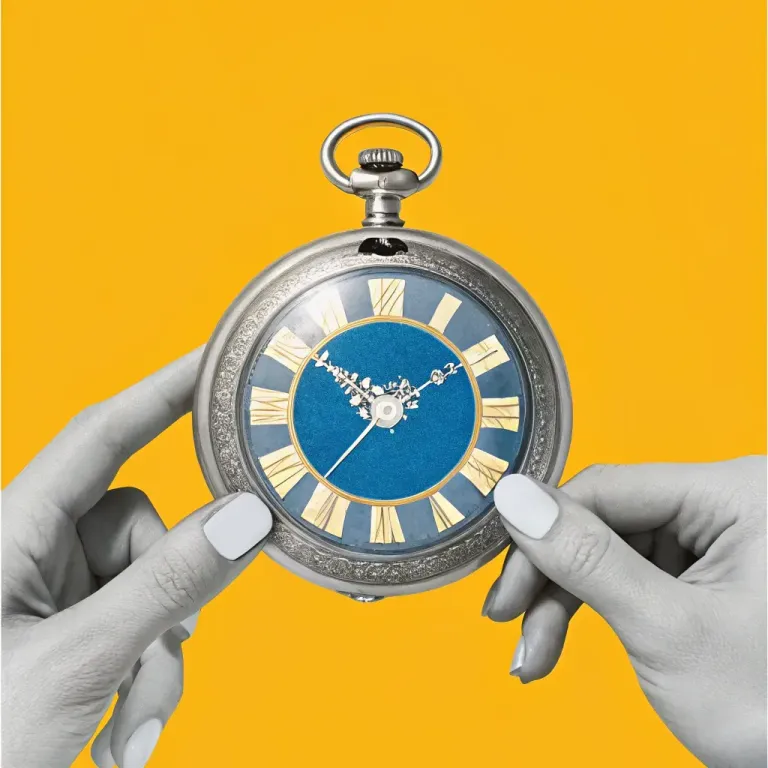
Time Abundance: Reclaim Your Day
Podcast by Beta You with Alex and Michelle
Practical Mindfulness for Busy People
Introduction
Part 1
Alex: Hello everyone, and welcome! Today, we’re diving into something we all crave—more time. But often, it feels like it's slipping through our fingers. Michelle: Oh, tell me about it! You know, you blink, and suddenly it's 2 AM, and you're spiraling down a Google rabbit hole, this time about astronaut laundry in space, or something equally absurd. Alex: Exactly! And that's why we are so excited to discuss this book today. It’s a practical guide that directly addresses the chaos of modern life. It's structured as a 100-day program, and helps us rethink our relationship with time. It’s not about cramming more into our already packed schedules, but is about focusing on what truly matters. The ultimate goal? Achieving what the author calls "time prosperity." Michelle: "Time prosperity," huh? Does this mean I can finally ditch my daydream of having a clone to handle all the chores? Alex: Not quite a clone, Michelle, but pretty close! The book offers mindfulness practices, reflective exercises, and intentional strategies to help you reclaim your time and direct it toward what truly matters. It's like having a toolbox filled with tools to help you build a more purposeful and fulfilling life. Michelle: A toolbox, eh? Does it come with an instruction manual for chronic overthinkers like myself? Alex: Ironically, yes! Today, we're going to unpack it into three key areas that anyone can implement. First, we’ll explore how mindfulness can fundamentally reshape your perception of time. Second, we'll examine the crucial link between your daily health rituals and a sense of groundedness. And third, we'll discuss how intentional living allows you to create a lasting impact. Think of your life as a garden. You’ll learn how to plant seeds of awareness, nourish them through wellness practices, and ultimately, harvest something truly meaningful. Michelle: Life as a garden…I like that metaphor. I'm calling dibs on specializing in low-maintenance succulents. Alex: <Laughs> Perfect! So, let's get started, shall we? Let’s dig in…figuratively speaking, of course.
Mindful Awareness and Time Perception
Part 2
Alex: So, let’s dive into the core of this, which is mindful awareness and how it can “really” change our perception of time. It's not so much about cramming more into your day, but more about how deeply you experience the time you do have. And it honestly all starts with gratitude. Michelle: Gratitude, huh? So, let me guess, this is where you tell me to get a journal and start listing things I'm thankful for every morning, right? Alex: Pretty much! But, here’s the deal: it’s not just about writing generic stuff like, “I'm thankful I’m alive." You’ve gotta dive into the specifics, the “really” vivid details. Like, instead of just saying "I'm grateful for my family," you could say, "I'm grateful for how my partner made me laugh so hard at breakfast that I spilled coffee everywhere.” Michelle: Okay, I get it. But explain to me how repeatedly writing down that I enjoy a great breakfast – or let's be real, mediocre instant oatmeal – actually changes how I perceive time? Alex: Well, that's “really” where the magic of gratitude comes in. When you “really” focus on those small joys, you start anchoring yourself in the present moment. Think of it as like, rewiring your brain to notice abundance instead of scarcity. And research actually backs this up – people who practiced daily gratitude reported lower stress levels and felt like time wasn’t slipping away from them so fast. Michelle: Hmm. So, it’s like teaching my brain to stop expecting the worst and start appreciating what's good? Alex: Exactly! And gratitude has this amazing ripple effect – it slows down that everyday hustle. When you pause, even briefly, to think about what’s good, it brings clarity and slows down that feeling of being rushed. Michelle: Interesting. Okay, but what happens when “real” life barges in? You know, the emails, the meetings and… oh yeah, other people? Alex: Great question, Michelle, because that's “really” where nature comes into play. The idea is that taking intentional breaks to connect with nature can “really” recalibrate your mental pace. Michelle: Nature? Alright, now we’re getting all poetic. Are we talking about, like, hiking Everest? Hugging trees? Alex: <Laughs> Not quite Everest! It can be something as simple as a 15-minute walk in a park, or even just sitting in your backyard with a cup of tea. The key is to actually be present – notice the breeze, the birds, the way sunlight filters through the trees. Michelle: Hmm. So, instead of scrolling through Twitter during lunch, I could take a walk and stare at… leaves? I mean, sounds lovely, but seriously, how does staring at some foliage actually fix the chaos of my life? Alex: Well, it's not “really” about "fixing" anything, Michelle. It's about teaching your brain to shift out of that constant "go-mode.” You know, nature has this way of slowing you down, of showing you how life operates in these natural rhythms. Studies show that just spending time in green spaces lowers your cortisol levels – your stress hormone – and boosts mental clarity. It’s like a built-in reset button. Michelle: Alright, nature, I see you. But what about all the digital noise that's constantly pulling us back into those stressful loops? I mean, even in a park, my phone's gonna buzz, and suddenly I'm back in an email chain that started with “quick question” and ended with me needing a therapy session. Alex: That’s where the digital detox comes in – the third crucial part of this mindful transformation. And the book “really” emphasizes setting intentional boundaries with technology, like scheduling blocks for email or social media instead of reacting to every beep and buzz. Michelle: Okay, now you’re talking my language. Give me an example. How does someone actually do this without their inbox just completely exploding? Alex: Well, the book highlights a middle manager who used to spend hours every day just jumping in and out of emails. They switched to time-blocking – dedicated, like, two 30-minute windows each day for email, and otherwise just, let everything else wait. The result was not only did their productivity skyrocket, but they actually had space to focus on more meaningful work – and their stress levels dropped. Michelle: Alright, I see the logic there. But what about the sheer, unadulterated horror of missing something urgent? Alex: That’s part of the lesson – learning that very few things are truly urgent. And for the ones that are? You can always have a backup plan, like, telling important people to just call you directly for emergencies. But the key is, when you intentionally disconnect from the constant pings and dings, you actually gain control over your time instead of just giving it away. Michelle: Fair enough, but let's not ignore the elephant in the room here – social media. I mean, I can block emails, but how do I stop myself from, like, doomscrolling at midnight? Alex: Well, that’s where the book suggests replacing that kind of scrolling with reflective rituals. You know, like, instead of 20 minutes on Instagram, maybe you journal about your day, or just spend those minutes observing your surroundings. One example was of someone swapping their nightly scrolling habit for lighting a candle and writing their thoughts – nothing fancy, just noticing their emotions and thoughts. Michelle: Candlelit journaling sounds like the plot of a period drama, but I respect the shift. So, the idea here is that stepping back from the digital frenzy doesn’t just save time – it reshapes how you feel about it? Alex: Exactly! Together, gratitude, nature, and digital detoxes “really” work to change your perception of time itself. You stop seeing it as this scarce, rushing thing, and start realizing it’s actually rich and abundant when you live intentionally. Michelle: Alright, Alex, you’ve convinced me to try at least one of these – even if just out of curiosity. But if my inbox actually rebels and causes a coup, I’m blaming Mother Nature.
Physical and Emotional Well-being as Time Anchors
Part 3
Alex: Right, so that sets the stage for really understanding how we can reshape our daily experience of time with intentional practices. Let’s build on the idea of mindfulness and get into the next big theme – how our physical and emotional well-being act as anchors. This is where things start to click. The basic idea is simple, but it can be transformative: By “really” taking care of our bodies and dealing with our emotions on purpose, we create some stability in what can be a chaotic life, and we shift from feeling like we're always short on time to feeling like we have plenty. Michelle: Okay, you’ve got me hooked now. So, we're talking about integrating the body and mind – sounds pretty philosophical, I must say. But how does that actually play out in real life? Alex: It’s not just about philosophy, Michelle; it’s about turning ideas into practical habits. The framework we’re looking at focuses on three main things: high-intensity workouts, eating with awareness, and processing emotions thoughtfully. These aren't just trendy self-care terms – they're time-saving practices that can boost your health and change how you see your time. Michelle: Practical and time-saving? Now that’s a sales pitch I can get behind. Let’s start with these workouts. What’s the basic concept? Alex: Right, High-Intensity Interval Training, or HIIT. It’s basically where you alternate between short bursts of really intense exercise and short rest periods. You know, a HIIT session can be just 20 minutes, but you get the same benefits as if you worked out for much longer. And the endorphins you get? Total game-changer for your mood and stress levels. Michelle: Efficiency and endorphins? Sounds like my kind of multitasking. But, I will admit, I'm a bit skeptical here—how can squeezing in a hard workout for 20 minutes give you the same results as, say, an hour at the gym? Alex: It's a matter of precision, not just squeezing things in. I’ll give you an example from the book: a working parent, right? They are juggling a full-time job and kids. They just couldn’t find time for long sessions at the gym. So, they switched those hour-long workouts for HIIT routines, like sprinting for 30 seconds, then walking for 90, and repeating that eight times. Just three sessions a week, and this person saw improved stamina and reduced stress. And science kind of proves this: studies do show that HIIT can give like the same or better heart health benefits compared to longer workouts, plus boost emotional well-being. Michelle: So… no excuses, then? Even if you’re super busy, you can squeeze in 20 minutes and call it a day? Alex: Totally! It’s not just about saving time, it’s about reclaiming it, you know? Instead of spending an hour stressing about what you're not doing, you can just knock out a workout and feel great. It’s a total win-win. Michelle: Okay, I’ll bite—HIIT does sound pretty efficient. But let’s switch gears here. You mentioned mindful eating earlier. Is that just a fancy way of saying, “Put your phone down when you eat"? Alex: Well, that’s part of it, definitely, but it “really” goes deeper, you know? Mindful eating basically means being fully present when you’re eating, paying attention to all the details like how things smell and taste, and treating the act of eating as something intentional, not just something you do without thinking. It’s the total opposite of just scarfing down fast food in your car or eating while staring at a screen. Michelle: So, what would that actually look like? Because I can already hear the skeptic inside me going, “Who even has time for that?” Alex: Picture this: a business executive, right? Used to eat lunch while answering emails, but then they decide to try mindful eating. Before each meal, they just pause for a moment, express some gratitude—just a few seconds to appreciate the food. Then, they eat slower, taking time to “really” notice the different textures and flavors, and putting their utensils down between bites. What happens? Better digestion, less stress during their lunch break, and just a deeper sense of satisfaction and connection to their body’s needs. Michelle: Hmm. Gratitude before chewing… I’ll admit, it sounds a little… what’s the word?… precious. But if it actually works, I’m all for it. So, what's the science behind all this? Alex: Well, there was a study in Appetite that actually found that practicing gratitude before meals can lower cortisol levels, which helps regulate your emotions, even when you’re stressed out. And when you combine that with slowing down to “really” savor your meal, it’s like hitting pause on a busy day. It doesn’t just improve how you relate to food, it also makes that break feel longer, like you have more time. Michelle: Alright, Alex the skeptic-slayer. I’ll admit that mindful eating might have its benefits. But let’s tackle the last piece here—emotional digestion. What does that even mean? Alex: Emotional digestion is “really” just the process of dealing with feelings that you’ve been putting off, kind of like mentally cleaning up your desk. When you don’t deal with your emotions, they can build up and cloud your focus. But when you address those feelings, whether it’s by journaling, going for a walk, or just reflecting, it can help clear the fog so you can think more clearly and just stay grounded in the present. Michelle: Journaling, huh? So, let me guess: I just grab a notebook, complain about my day, and suddenly feel better? Alex: Well, it’s a little more intentional than that. I mean, the book talks about how someone had a stressful week and journaled about a conflict at work. And as they wrote, they realized that their anxiety wasn’t “really” about the conflict itself, but about a fear of letting their boss down. And that realization actually helped them deal with the situation more clearly and confidently. Michelle: So journaling acts as this emotional mirror, helping you see the situation more clearly. But what about people who aren’t natural writers? Is there a less pen-and-paper alternative? Alex: Absolutely. Even something as simple as a short walk can do wonders. Another person in the book, for example, described using their midday walk to think through a problem at work. The rhythm of walking just gave their mind the space to sort things out, and by the end of the walk, they’d actually come up with a solution. So, movement and just some time alone can be just as effective as journaling for processing emotions. Michelle: I like that—it’s less about forcing a specific method and more about creating room for reflection, you know? So, connecting the dots here: physical health, mindful rituals, and dealing with emotional clutter all feed into this bigger picture of reclaiming time? Alex: Exactly. Physical wellness clears stress and gives you energy, mindful practices anchor you in the present, and emotional digestion lightens the mental load. Together, they shift your perspective— suddenly time feels less like this scarce resource slipping away and more like something rich and nurturing. Michelle: Alright, you’ve convinced me that these anchors might be worth exploring. Though if I switch to mindful eating, I’m starting with dessert. Deal? Alex: Deal. And nothing’s more mindful than “really” savoring chocolate! So, Michelle, which of these anchors are you willing to try first?
Intentional Relationships and Legacy Building
Part 4
Alex: So, with a strong mind-body connection in place, we're ready to broaden our perspective, right? We’ll see how these practices affect our relationships and the legacy we leave behind – how our intentions ripple outwards, influencing not only our own lives but also those around us, and even future generations. Today is all about intentional relationships and legacy building. Michelle: Legacy. Hmmm, that's one of those loaded terms that either spark deep reflection or cause a total existential crisis. Alex, where do we even begin with something like that? Alex: Well, fundamentally, Michelle, it’s about two key things: nurturing “really” meaningful relationships and making sure our actions line up with what we truly believe in, so we leave a lasting mark. It’s about lifting our heads up from the daily grind and asking ourselves, "What actually matters here? What kind of foundation am I building?" Let's start with something everyone can relate to: family time. Michelle: Family time – sounds easy enough, but I'm betting this isn't just about slotting in a quick movie night in between endless Zoom meetings and rushing to the grocery store. Alex: Exactly! It’s about “really” creating those intentional spaces for connection. Like, there’s this story about a family that decided to have screen-free dinners. And yeah, at first, of course, there was pushback – everyone’s practically glued to their devices – but gradually, it became this precious ritual. They started sharing stories, expressing gratitude, even talking about their goals. And their youngest kid, who was normally super quiet? They “really” came out of their shell and started participating. Michelle: Okay, but realistically, in this day and age of TikTok and constant email notifications, screen-free dinners? I mean, that's a tough sell. What's the real benefit that makes enduring the collective groans worthwhile when you confiscate everyone's phones? Alex: Oh, the upside potential is huge! Studies actually show that families who disconnect during meals have better communication and stronger emotional connections, especially with teenagers. These little pockets of connection, Michelle, become the threads that weave trust and understanding between people. It’s not about how much time you spend, but the quality of that time. Michelle: Okay, fair enough. So, even if I can't create some perfect family dinner scene every single night, I get how those intentional moments can accumulate. But, uh, what about relationships that, let’s just say, aren't exactly a source of joy? Alex: Ah, the energy vampires! Those one-sided relationships that just suck you dry without giving much back in return. This book doesn’t mince words – it encourages you to identify those dynamics and set some boundaries. Like, there’s this story in the book about a young professional who was being emotionally drained by a “really” demanding friend. She felt like she constantly had to respond, you know, which left her totally depleted. So, eventually, she took a step back, set some limits, and found the space to focus on relationships that actually lifted her up. Michelle: So, basically, Marie Kondo your social life: if it doesn’t spark joy, thank it and move on. Easier said than done, right, Alex? What if the "energy vampire" happens to be, let's say, your boss, or someone you have to deal with on a daily basis? Alex: The book does address that not all relationships can be cut off completely. So in those situations, it’s more about adjusting your expectations and setting boundaries. Communicate clearly – like, make it clear when you're available, or keep your interactions brief and professional. It’s not about avoiding people altogether, but controlling how much of your mental or emotional energy they have access to. Michelle: That makes sense. You’ve got to protect your time like it's an endangered species. Okay, let's switch gears here. Relationships are obviously part of the legacy we leave, but what about the bigger picture? How do we connect all of this to some kind of… greater purpose? Alex: That’s where legacy-building “really” comes into play. It involves reflecting on your fundamental values, and asking yourself, "What is it that I want to leave behind?" There's a story in the book about a retired teacher. After pouring decades into her career and family, she realized she had unfulfilled passions, like traveling and community gardening. So, she made a bucket list and transformed this abandoned lot into a flourishing neighborhood garden. And get this – that garden became more than just plants. It symbolized connection and growth for the whole community. Michelle: A bucket list legacy. I like the sound of that! Though, a big project like that can feel overwhelming, especially when you're already juggling so many responsibilities. How does someone even figure out where to begin? Alex: One approach the book highlights is "emotional mapping" – basically listing your goals and the emotions associated with them. So, for example, the teacher linked "joy" to traveling, "fulfillment" to tending the garden, and "connection" to working with her neighbors. This process helped her prioritize goals that “really” resonated with her values, making the whole thing feel a lot more intentional and less overwhelming. Michelle: That’s pretty smart – aligning your to-do list with, like, your emotional GPS. Alright, let's talk about something a bit less concrete. All this talk about presence and connection makes me wonder: How do we go about fixing relationships that are already strained or feel distant? Alex: That’s such a good question, Michelle. The book goes into this using a practice called "gratitude letters." So, let me tell you about a mother who had grown apart from her daughter. She started writing letters expressing her appreciation, sharing memories, and even recognizing her own regrets. At first, it was all one-sided, but eventually, her daughter opened up, and they were able to reconnect. Gratitude was the bridge. Michelle: Writing letters – so old school, but I respect it. Gratitude clearly does wonders for relationships. It’s like... WD-40 for human connection. But what can we take away from that for those of us who don’t have time to write essays? Alex: Even small acts of gratitude can make a big difference, like a sincere note, kind encouraging words, or “really”, any thoughtful gesture. It’s less about the specific thing you do and more about the intention behind it. Consistently Expressing appreciation is good in building trust, and it’s good in Strengthening bonds. Michelle: Alright, I'm sold! Gratitude might just be the ultimate secret weapon. So wrapping things up, this whole legacy-building idea isn’t just some grand, end-of-life thing, it’s about actively aligning your daily actions with your values. Alex: Exactly! Think about it. Whether it’s nurturing stronger connections, setting better boundaries, or taking on projects that mean something, every small decision contributes to the bigger picture. Legacy is built moment by moment, choice by choice. When we live with intention, we create not just a fulfilling present but also a future that “really” reflects what matters most to us. Michelle: Well, Alex, you've definitely got me thinking about what I want my metaphorical garden to look like – and maybe an actual garden, too.
Conclusion
Part 5
Alex: Okay, so today we've really dug into how to change our whole perspective on time using three main ideas. First, being more mindful to switch from feeling like we're always short on time to feeling like we have plenty . Then, grounding ourselves with, you know, physical and emotional anchors . And finally, building strong, intentional relationships to create a legacy that “really” matters . Michelle: Right, and let's not forget the actual steps we can take, like practicing gratitude, setting boundaries, slowing down when we eat, and even just journaling or going for a walk to sort of clear our heads . It's all about building small, deliberate habits that change how we experience time, isn't it? Alex: Absolutely . Time isn’t just something to control; it’s something we should “really” value . So, it's worth asking ourselves, how are we using our time today to build the life—and the relationships—that are genuinely important to us? Michelle: Good point, Alex . And for our listeners, perhaps start by decluttering your own, shall we say, "life garden"? Maybe ditch a draining commitment or try incorporating just one mindful habit this week . Small changes, potentially significant results . Alex: Exactly, Michelle . Thanks for spending your time with us, everyone, and we “really” hope you've found some ideas worth exploring . Michelle: Until next time . Here’s to having more than enough time, instead of constantly being rushed—and maybe, just maybe, a few dinners without any screens .
